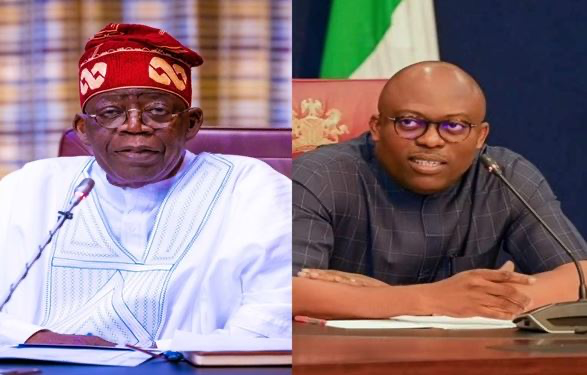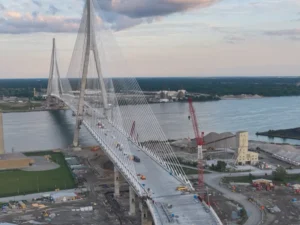In a significant development, President Bola Tinubu recently hosted Rivers State Governor Siminalayi Fubara and prominent leaders from Ogoniland at the Presidential Villa in Abuja. The high-profile meeting aims to address key issues affecting the region, particularly the Ogoni clean-up project and discussions around resuming oil exploration.
Governor Fubara arrived alongside Senator Lee Maeba and an influential delegation that included Senators Magnus Abe, Olaka Nwogu, Bennett Birabi Barry, Mpigi, and Joe Poroma. Other notable figures present were Chief Victor Giadom, Chief Kenneth Kobani, Monsignor Pius Kii, and Ledum Mitee.
Additionally, several senior government officials were part of the meeting. These included Mele Kyari, the Group Chief Executive Officer of the Nigerian National Petroleum Company Limited (NNPC); Minister of Environment, Balarabe Abba; Minister of Information and National Orientation, Idris Mohammed; Minister of Regional Development, Abubakar Momoh; and National Security Adviser, Mallam Nuhu Ribadu.
Although the meeting’s agenda has not been disclosed publicly, sources suggest it centers on the ongoing Ogoni clean-up project and the potential resumption of oil exploration in Ogoniland. Both topics are critical for the region’s environmental and economic recovery.
However, the meeting has sparked concerns among the Movement for the Survival of the Ogoni People (MOSOP), a key advocacy group for Ogoniland. In a statement signed by its factional presidents—Prince Nuyete Biira, Fegalo Nsuke, and Engr. Olu Andah Wai-Ogosu—MOSOP expressed frustration over their exclusion from the talks.
The group described the meeting as “secretive” and warned that bypassing their involvement could harm ongoing peace and reconciliation efforts in the region. MOSOP emphasized the need for inclusive dialogue to address Ogoniland’s issues comprehensively.
The outcomes of this meeting could have significant implications for Ogoniland and its people. As discussions around environmental restoration and oil exploration unfold, all stakeholders must prioritize transparency and collaboration to ensure sustainable progress for the region.







